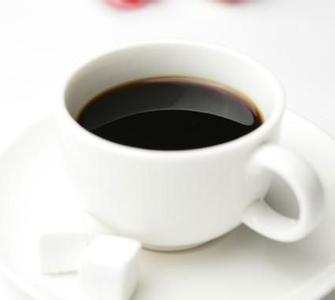Do you know why Koreans are so successful in opening cafes?

What are the most popular cafes in China's first-and second-tier cities in the past two years? The answer is not Starbucks or COSTA, but all kinds of cafes with Feel: coffee with you, coffee from the zoo, coffee from Hollis, coffee from the road, and so on.
These cafes have one thing in common: they are all founded by Koreans!
Coffee? Come on, it's just a little prop!
Did the Koreans really get the true biography of the coffee god? How many secrets did you get? Today, let's share how successful the cafe for Shenma Koreans is:
The "factions" of the common cafes on the market:
European coffee shops represented by French and Italian coffee: special emphasis on the quality and taste of coffee beans, summed up in a recent popular sentence: private shops with craftsman spirit
The American cafe represented by Starbucks: it mainly emphasizes professionalism, speed and strong business atmosphere, and gradually evolves into the second office of urbanites.
Taiwan coffee represented by the above island coffee, old tree coffee and real pot coffee: it can be said that it is a coffee brand that really adapts to China's national conditions, is a preacher of Chinese mainland coffee culture, and successfully combines coffee culture with China's unique leisure culture. therefore, it is only here to see landlords fighting while drinking coffee. Perhaps too successful, so that the successor less incentive to continue to innovate.
And the Korean cafe is a complete reappearance of the plot of Korean TV dramas! Use more gorgeous space than you can imagine to give you a short chance to be out of touch with reality! Coffee? Come on, it's just a little prop!
Next, let's focus on the current popular Korean cafe brands:
Coffee with you
South Korea's largest coffee chain, which has more than 900 stores in South Korea since its establishment in 2008, is headquartered in Qingtandong, Gangnam District, Seoul. In addition to coffee, it also manages a variety of high-end tea, lattes, fruit juices, waffles, breads and other goods. at present, there are more than 1200 chain stores in the world, distributed in South Korea, the United States, the Philippines, Cambodia and other countries. Caffebene entered the Chinese market in March 2012. It quickly blossomed in first-and second-tier cities. At the door is a huge portrait of Zhang Genshuo. If you don't pay attention, you will think that some handsome guy is looking at you!
Zoo coffee
Zoo Coffee was founded in South Korea in 2009 and has more than 100 stores in just two years in 2011, making it one of the hottest coffee shop chains in South Korea. Kim Chien-woo, the founder of Zoo Coffee, is a very energetic young Korean who started his business at the age of 26 and tried many innovative and unusual industries, such as 24-hour distribution, and finally opened a cafe! He is a coffee addict himself, with at least three cups of American coffee a day. The reason for introducing Zoo Coffee to China, Jin Jianyou explained: "the coffee market in South Korea is saturated, while the Chinese market still has a lot of room." (that depends on how everyone understands it.)
Diffuse coffee
This cafe is even more interesting. The founder is a Korean named Xin Zixiang, who started a business in Beijing. Headquartered in Beijing, the first store, Beijing Lido, opened in January 2011. By the end of 2013, more than 60 stores had opened in more than two years, and it is said that the first 36 stores have begun to make a profit. Man Coffee takes the way of direct operation and cooperation, which accounts for 25%, 35%, and 65%, 75% of the shares in stores. It is a miracle that such a coffee brand with no background, no brand story and no abundant capital can develop to this extent in just three years.
Holly Coffee
Hollis Coffee, founded in 1998, is the first branded coffee chain in Korea and now has the same number of stores as Starbucks in South Korea. At present, it is one of the four major coffee brands in South Korea, with branches in China, Thailand, Malaysia and other countries. Hollis Coffee China opened its first store in Chegongmiao in Shenzhen in March 2013, and the global flagship store opened in Shenzhen's Happy Coast in the second half of 2013. Lin Dan, the 2014 badminton champion, joined the coffee brand and opened its first Holly Coffee in Beijing.
After listening to these brands, everyone understands that there must be a reason for Koreans to be so successful in the coffee shop segment:
1. The entrepreneurial spirit of Koreans who are constantly seeking change.
In the past, a Taiwanese uncle talked about the characteristics of Taiwan businessmen, to the effect that the reality of the island made the Taiwanese not magnificent enough, but the limitations of the natural environment and resources fully stimulated the potential of people. Koreans and Japanese are probably similar, this characteristic can not be copied, because of the national character. Again, South Korea has a population of more than 50 million and a land area of 99000 square kilometers, which is slightly smaller than that of Zhejiang Province.
2. Koreans have an inexplicably good sense of design.
In fact, from the 2001 film "my savage girlfriend", we can feel that 13 years ago, Koreans were far ahead of China in their understanding of color, composition and details. Since then, Koreans continue to occupy a very important position in the field of web design and game design. Perhaps it is the natural sense of design that directly widens the gap with the taste of the cafes run by Chinese tuhao. Jin Jianyou, the founder of Zoo Coffee, is an example. This guy has never studied design, but he feels surprisingly good about design. He is alone in all the design ideas and implementation in the cafe.
3. The success of Korean cultural export.
Some people say that South Korea has done one thing in the past decade, constantly carrying out "cultural aggression" with music, movies, and TV dramas, and the result of perseverance is of course a success. Korean products are synonymous with fashion, romance and beauty in the eyes of young people. A piece of news I saw today can be said to be an extreme note: after a year in South Korea, a handsome Brazilian guy fell deeply in love with Korean culture and finally relied on powerful plastic surgery techniques to turn himself into a single-eyelid, dark-haired Asian man.
4. Coffee is by no means the only thing that makes money in Korean cafes.
But a variety of desserts and foods with exquisite tableware, fresh ingredients, bright colors and creative dishes. Waffles are usually sold in cafes for no more than $20, but at Hollis or Man Coffee, waffles are placed on a nice plate and squeezed with cream or chocolate for $35 or more.
Important Notice :
前街咖啡 FrontStreet Coffee has moved to new addredd:
FrontStreet Coffee Address: 315,Donghua East Road,GuangZhou
Tel:020 38364473
- Prev

Ecuadorian coffee comes from the seductive beans of the equator
Most countries in the world are rich in only one kind of coffee beans, while Ecuador is one of the few countries in the world that can produce both Arabica coffee beans and Robusta coffee beans. The Ecuadorian Coffee tasting, sponsored by the Consulate of Ecuador in Guangzhou, was recently held at the Art Cafe in the Guangdong Provincial Museum. Organic beans, flowers and fruits, caramel smell to the nostrils according to the melon
- Next

Construction of the whole industry chain of fine coffee in Lincang, Yunnan
In recent years, the boutique coffee industry in Lincang City, Yunnan Province has emerged as a new force, and is building a new industrial chain around the links of boutique coffee cultivation, scientific research, processing, brand building and so on. Li Xiaoping, secretary of the Lincang Municipal Party Committee, said in an interview with the China Economic Times that Lincang will rely on the brand of China's Lincang boutique coffee bean demonstration zone, according to ecology, sustainable, high quality and high yield, and low-carbon environmental protection.
Related
- Beginners will see the "Coffee pull flower" guide!
- What is the difference between ice blog purified milk and ordinary milk coffee?
- Why is the Philippines the largest producer of crops in Liberia?
- For coffee extraction, should the fine powder be retained?
- How does extracted espresso fill pressed powder? How much strength does it take to press the powder?
- How to make jasmine cold extract coffee? Is the jasmine + latte good?
- Will this little toy really make the coffee taste better? How does Lily Drip affect coffee extraction?
- Will the action of slapping the filter cup also affect coffee extraction?
- What's the difference between powder-to-water ratio and powder-to-liquid ratio?
- What is the Ethiopian local species? What does it have to do with Heirloom native species?

